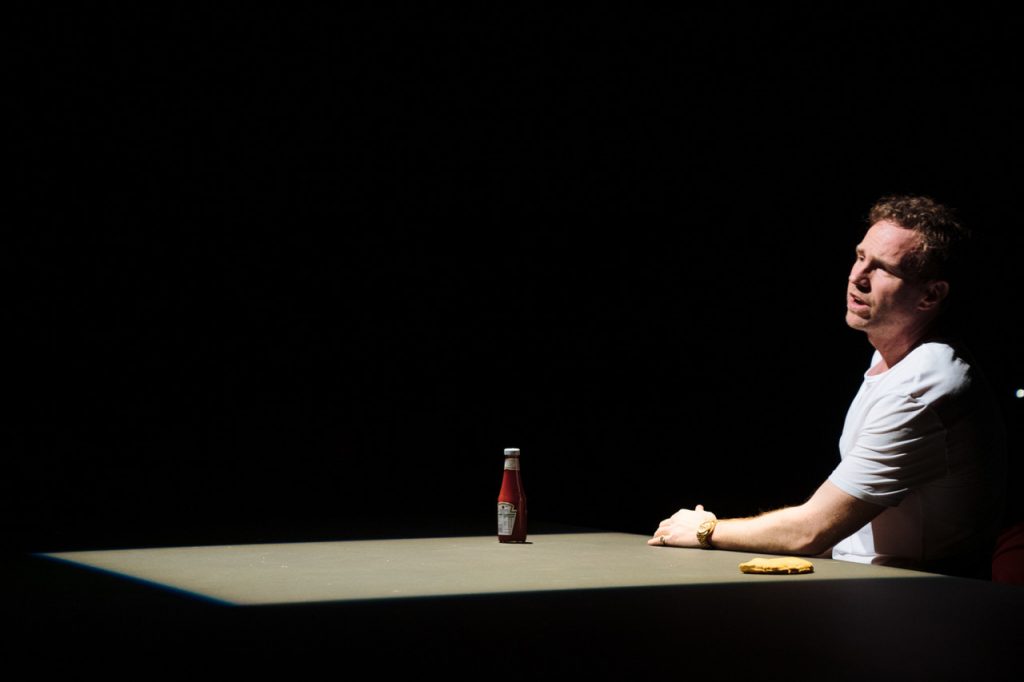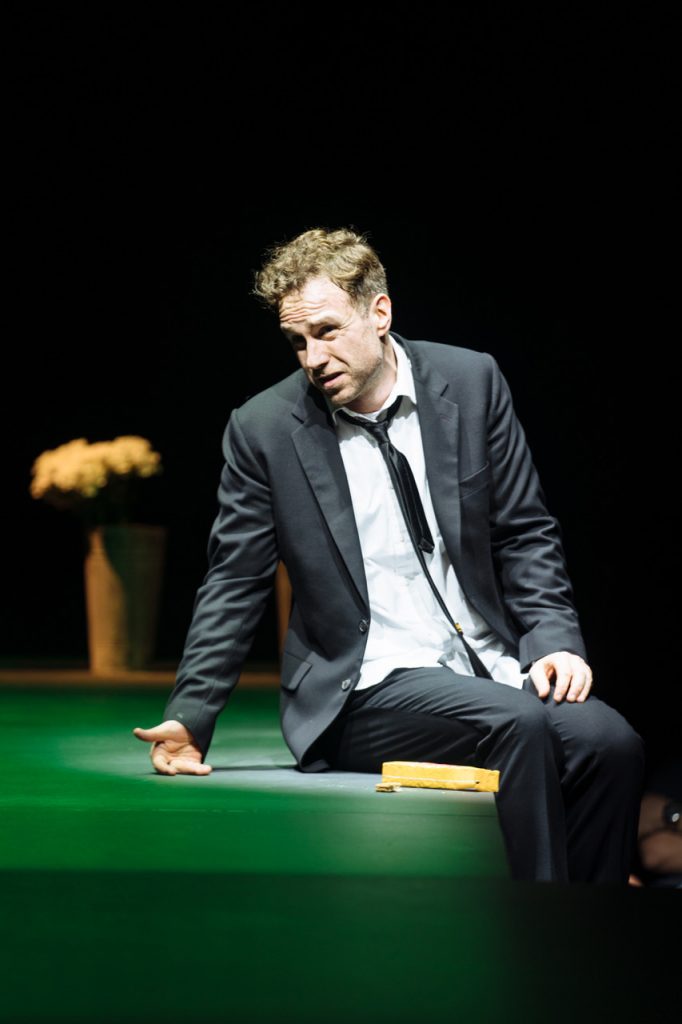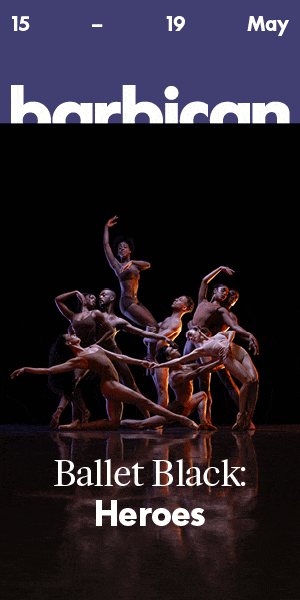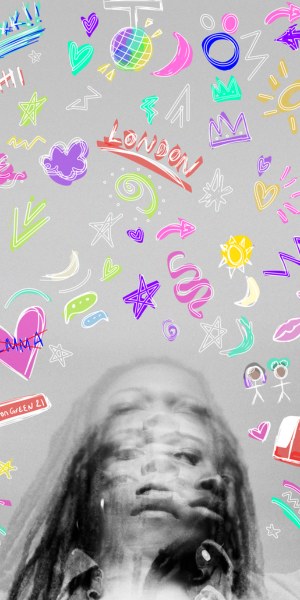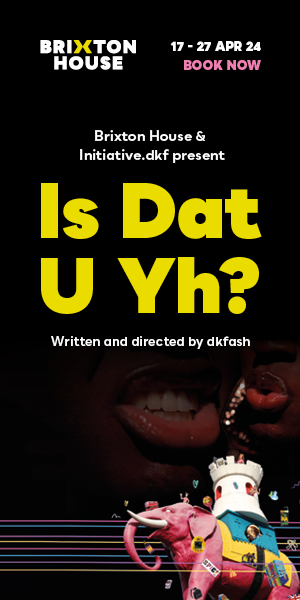With this one-man play about the toxic rage of a modern white British male, the writers make some very interesting decisions:
The first is to depict the racism without ever reverting to overtly racist language or relying on the description of physically violent incidents.
Instead, the aggression is more psychic – more a grounded slow-burn, than grotesque horror.
Of course, we get brief specific references to ‘Brexit’, ‘Muslims’, Raheem Sterling’s place in the Enger -land football team; the latest Windrush scandal; but the fact that these references to England’s racist recent past /present are trotted out so summarily – yet still resonate – speaks volumes.
Indeed, a great deal of subtlety is employed in the writing, staging and – of course – in Rafe Spall’s towering performance of ‘Michael’, a middle-aged product/victim of English urban multiculturalism – and a racist white family. The actor’s physicality, and vocal mannerisms give a sense that his character, ‘Michael’ is not performing mere impersonations for his (or our) own amusement; he is making sense of the voices in his head in order that his own voice may fully surface.
A great deal of subtlety is employed in the writing, staging and – of course – in Rafe Spall’s towering performance
‘The father’ is constantly reminding those in his community that there’s a ‘time and place’ for racist rhetoric (i.e. behind closed doors away from the kids), tribal chanting on the football terraces (ditto), and banana-based football commentary.
The writers are aware that the most effective deviants (for that is what a racist is, lest we forget) know how-to pass-through society undetected when necessary. Therefore the most chilling aspect of ‘the father’ is not his concern that his son might become racist – far from it; rather that his son is made aware of the most effective ‘time and place’ in which to be so (e.g. ‘not in front of the stall’).
What the writers also do wonderfully well is create well-rounded female characters. So we get (non-lampooned) versions of ‘Delroy’s Jamaican-born mother, and Michael’s mother and sister (‘Carly’). These women all play vitally important roles in Michael’s life, yet you can clearly see how each one must carry the burdens imposed upon them by O.P.P. (other peoples’ prejudices), until the psychic scarring becomes an indelible part of their own identities.
[Through children’s eyes are the horizons widest] Of course, within a multi-cultural environment, it is generally inculcation by adult guardians that teaches children to hate; paradoxically it is via their own children’s interactions that the adults learn to (at least) tolerate… until the doors close… or the kids grow up…. or there’s a referendum.
We see, however, that the taste of Delroy’s mum’s delicious patties cannot wash away the bile that is forced in – and out – of Michael’s throat through the years. Indeed, in Spall’s performance, you can literally hear it forming a connective tissue as he morphs into his father – the sound of an attempted self-exorcism.
And therein lies the really interesting aspect of the writing: Neither Michael’s mother nor father can truly love him, because he cannot truly hate others.
His parents require him to be that which he cannot be; thereby calling into question everything they are – or choose to accept of themselves.
Are they supposed to love ‘their own’ less for signposting their own racism, or do they hate everyone else – including themselves -even more, in compensation?
Can the virtues of the son be passed up to the father…and/or mother?
The two writers have alchemized the toxic rage of white English male masculinity and – under Clint Dyer’s direction – Rafe Spall creates a powerful, frightening, funny and (sadly) believable character.
Writers Clint Dyer and Roy Williams, having created a male character that knows his self-loathing emanates from the same place he seeks love (his father), they ask some very pertinent questions:
‘Can love be attained through an adherence somebody else’s hateful philosophy?’
‘Can a full life be achieved without the rule(s) of love?’
‘How to achieve a loving state, living in a State – or in an estate – of constant hatred?’
Perhaps there were conversations had between the two writers regarding a ‘darker’/ more statistically common denouement; however I feel they made the right choice by their avatar / character ‘Michael’.
By ending as they do, the writers display a greater compassion for – and deeper understanding of – the white male racist than he has himself; or, indeed, if the steel toe-capped boot were to be placed on the other foot.
The staging is a ‘three-quarter round’; a ‘red cross within black’ double catwalk is employed so that Spall can run, walk, hobble and sashay, in telling his story.
There is fine reveal mid-way through, and one of the funniest eulogies you’re ever likely to see.
The real-time sound effects were well considered, as was the placement and use of props throughout.
The soundscapes, use of echo-effects and the supporting voice-work gave a sense of how the other characters affected – and arrested – Michael’s development.
Certain mainstream reporters and ‘social commentators’ have expressed surprise that two black British males could voice white (toxic) masculinity quite so well.
One would have thought that, with a modicum of self-awareness, the question would seem redundant; but we live where we are – which is the point.
The privilege of ignoring patronising questions, or lazy assumptions is not one afforded to those of African or Caribbean descent – no matter how long we reside on this shrinking, little island.
However, if we know what’s good for us, each generation must dig a little deeper into the soul mine– with more clarity (and charity) to explain – yet again – the clear disparity; sweat, style and guile – not bile – our only option.
The two writers have alchemized the toxic rage of white English male masculinity and – under Clint Dyer’s direction – Rafe Spall creates a powerful, frightening, funny and (sadly) believable character.
Indeed, he is a vessel for our time; one from which pours out some of England’s viscous, vicious… whispered ‘home truths’.
It’s not cool aid, but it’s a potent brew nonetheless.
Go see.






















